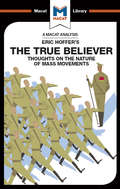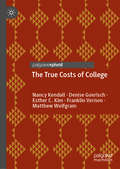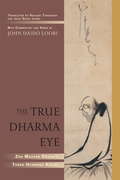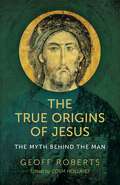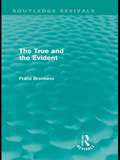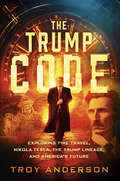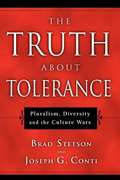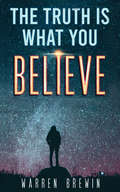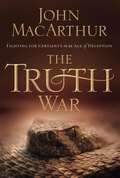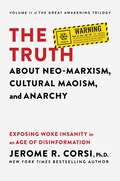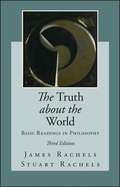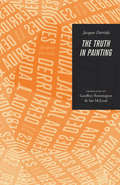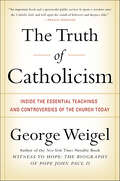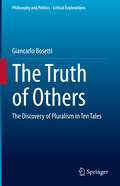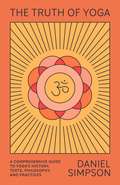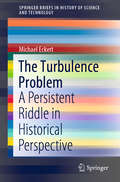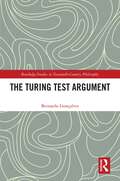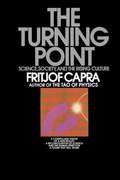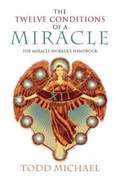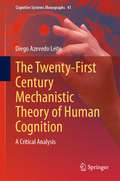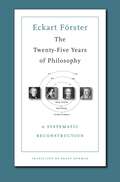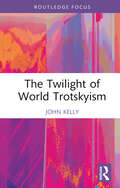- Table View
- List View
The True Believer: Thoughts on the Nature of Mass Movements
by Jonah S. RubinEric Hoffer’s The True Believer: Thoughts on the Nature of Mass Movements is one of the most widely read works of social psychology written in the 20th-century. It exemplifies the powers of creative thinking and critical analysis at their best, providing an insight into two crucial elements of critical thinking. Hoffer is likely to go down in history as one of America’s great creative thinkers – a writer not bound by standard frameworks of thinking or academic conventions, willing to beat his own path in framing the best possible answers to the questions he investigated. An impoverished, largely unschooled manual laborer who had survived the worst effects of the Great Depression in the United States, Hoffer was a passionate autodidact whose philosophical and psychological education came from omnivorous reading. Working without the help of any mentors, he forged the fearsomely creative and individual approach to problems demonstrated in The True Believer. The book, which earned him his reputation, examines the different phenomena of fanaticism – religious or political – and applies Hoffer’s analytical skills to reveal that, deep down, all ‘true believers’ display the same needs and tendencies, whatever their final choice of belief. Incisive and persuasive, it remains a classic.
The True Costs of College
by Nancy Kendall Denise Goerisch Esther C. Kim Franklin Vernon Matthew WolfgramThis book examines the true costs of attendance faced by low- and moderate-income students on four public college campuses, and the consequences of these costs on students’ academic pathways and their social, financial, health, and emotional well-being. The authors’ exploration of the true costs of academics, living expenses, and student services leads them to conclude that current college policies and practices do not support low-income and otherwise marginalized students’ well-being or success. To counter this, they suggest that reform efforts should begin by asking value-based questions about the goals of public higher education, and end by crafting class-responsive policies. They propose three tools that policymakers can use to do this work, and steps that every person can take to revitalize public support for public education, equity-producing policies, and democratic participation in the public arena.
The True Dharma Eye: Zen Master Dogen's Three Hundred Koans
by John Daido Loori Kazuaki TanahashiA collection of three hundred koans compiled by Eihei Dogen, the thirteenth-century founder of Soto Zen in Japan, this book presents readers with a uniquely contemporary perspective on his profound teachings and their relevance for modern Western practitioners of Zen. Following the traditional format for koan collections, John Daido Loori Roshi, an American Zen master, has added his own commentary and accompanying verse for each of Dogen's koans. Zen students and scholars will find The True Dharma Eye to be a source of deep insight into the mind of one of the world's greatest religious thinkers, as well as the practice of koan study itself.
The True Origins of Jesus: The Myth behind the Man
by Colm Holland Geoff Roberts'The True Origins of Jesus by Geoff Roberts, will save you years of research by giving the answers your inquiring mind is thirsting for. It bridges the gap between truth and myth, with a common sense that is difficult to find these days in discourses about Jesus.' Dean Wilkinson, Founder of Epochwork.com.With all the evidence compiled in this book, including some which has only come to light relatively recently, you can draw your own conclusions from a story which will look very different to the one you learned at school. Was Jesus Christ a mythical figure who was never intended by the early founders of the religion to be a walking, talking historical person? By examining the earliest historical sources referred to in this book with an open mind, you will be free to decide who Jesus is for you today.
The True and the Evident (Routledge Revivals)
by Franz BrentanoFirst published in English in1966, The True and The Evident is a translation of Franz Brentano’s posthumous Wahrheit und Evidenz, edited by Oscsar Kraus. The book includes Brentano’s influential lecture "On the Concept of Truth", read before the Vienna Philosophical Society, a variety of essays, drawn from the immense wealth of Brentano’s unpublished material, and letters written by him to Marty, Kraus Hillebrand, and Husserl. Brentano rejects the familiar versions of the "correspondence theory of truth" and proposes to define the true in terms of the evident. In criticising the metaphysical assumptions presupposed by the correspondence theory, he sets forth a conception of language and reality that has subsequently become known as "reism".
The Trump Code: Exploring Time Travel, Nikola Tesla, the Trump Lineage, and America's Future
by Troy AndersonCould the Trump family&’s connections to time travel, esoteric knowledge, and secret societies hold clues to unlocking the mysteries of our past and future? By the end of this book, you will be able to connect the uncanny parallels between the novels Lockwood penned over a century ago and the Trump family legacy. Additionally, you will be able to solve the mystery to the upcoming 2024 election season. In the annals of American presidential history, there is no more peculiar tale than the eerie similarities between former President Donald Trump and a series of novels called, The Baron Trump Collection, penned by the obscure yet seemingly prophetic hand of American lawyer and novelist Ingersoll Lockwood in the late 1800s.The Trump Code delves into the connections between the Baron Trump novels and the enigmatic Trump family legacy, asking whether this nineteenth-century novelist foresaw the future of not only Trump but America and the world. It also uncovers a web of historical events and divine providence. Drawing from biblical passages about Enoch, Elijah, the Apostle John, the Mount of Transfiguration, and a mysterious verse in Ephesians on how Christ&’s followers are seated in &“heavenly places,&” along with theories of time travel by Albert Einstein, Nikola Tesla, and others, The Trump Code connects the pieces of this riveting puzzle, posing the question of whether &“truth is stranger than fiction,&” as Mark Twain famously said. As we peel back the layers of history, The Trump Code confronts questions that defy easy answers: Could this fictional novel hold clues to the upcoming 2024 presidential election, with all its division and chaos? Is there a divine hand guiding the course of human events, as suggested by the parallels in these novels between fiction and reality? Or are we witnessing the machinations of darker forces, hinted at by the curious numerology surrounding Lockwood&’s name?
The Truth About Gun Control
by David B KopelWho is sovereign in the United States? Is it the people themselves, or is it an elite determined to rule citizens who are seen as incapable of making choices about their own lives? This is the central question in the American gun-control debate.In this Broadside, David Kopel explains why the right to keep and bear arms has always been central to the American identity - and why Americans have always resisted gun control. The American Revolution was sparked by British attempts to confiscate guns. After the Civil War, the U.S. changed the Constitution to defeat the nation's first gun-control organization, the Ku Klux Klan. When Hitler and Stalin demonstrated how gun registration paves the way for gun confiscation, which paves the way for genocide, Americans resolved to make sure it never happens here.Gun control is not an issue of left vs. right or urban vs. rural. The right to bear arms is crucial to prevent large-scale tyranny by criminal governments and small-scale tyranny by ordinary criminals - and to protect our Constitution.
The Truth About Tolerance: Pluralism, Diversity and the Culture Wars
by Brad Stetson Joseph G. ContiStetson and Conti argue just the opposite: that true tolerance requires the pursuit of truth. In the end they demonstrate that Christian conviction about religious truth provides the only secure basis for a tolerant society which promotes truth seeking. Christians can contribute to civil debate without compromising their moral and spiritual convictions.
The Truth Is What You Believe
by Warren BrewinIn 550 BC, or thereabouts, Buddha stated: “I am the sum total of everything I thought.”This was divine wisdom that is inspiration for the book’s title, The Truth Is What You Believe. Everything you think is based on a process of thought reaching a conclusion that becomes exactly what you are, as you traverse the complexities and opportunities of your life.‘The Truth of Religion’ reviews the position of the major religions and influences they have in societies globally today, and how technological/social giants like Google, Facebook and YouTube threaten the loyalty to religion and the values that came with those belief systems.‘The Truth of Sport’ examines whether money and greed have overtaken human integrity. Does the end justify the means today? The original endeavour of competitive sport started with the purest of ideologies in the Olympics rebirth in Greece in 1896. These earnest human endeavours are in stark contrast to the drug-ridden, corrupt fiasco that is prevalent in many professional sports today. Discover what makes today’s top athletes really tick.If there are no rules, there is no discernible truth. The section on the ‘Truth of Business’ looks at how creating credibility in every moment of a company’s existence is the key ingredient to success and more importantly how the leader and structure play a part. Commitment to strong ideals is paramount.Weak people tend to accept and are happy to exist in a world of lies, as it is often easier and cheaper to delude yourself than confront reality head on. How people from all walks of life deal with the adversity of relationship failure and how absolutely critical the truth is, in all your relationships, is uncovered in its barest form in the ‘Truth of Relationships’.After the first betrayal, you have nothing, so living a true life means you will always have your integrity, a value beyond comparison.The truth is the god particle that binds the universe for mankind – cherish it always.
The Truth about Neo-Marxism, Cultural Maoism, and Anarchy: Exposing Woke Insanity in an Age of Disinformation
by Jerome R. CorsiThis book exposes the dark, evil ideology that has descended over America. The arch of the Hegelian dialectic culminates only in negation, with millions annihilated in the nightmare apocalypse of post-modernist Democratic Socialism.The Truth about Neo-Marxism, Cultural Maoism, and Anarchy: Exposing Woke Insanity in an Age of Disinformation reveals how Communist ideology has evolved into its present-day woke madness that began with Immanuel Kant and Georg Wilhelm Friedrich Hegel, continued through Antonio Gramsci and the Frankfurt School, and concluded with post-modern thinkers like Jean Baudrillard. Want to understand why the neo-Marxists, cultural Maoists, and anarchists of the woke critical theory radical Left live in a fundamentally different view of reality, operating with a set of values that redefines truth to be subjective? Read The Truth about Neo-Marxism, Cultural Maoism, and Anarchy—but be prepared to be shocked. Jerome R. Corsi has conducted a tour-de-force examination of philosophical texts, modern critical theory treatises, and the murderous history of Communism under Stalin and Mao that exposes the neo-Marxists behind today&’s anti-capitalist woke schizophrenia.
The Truth about the World: Basic Readings in Philosophy
by James Rachels Stuart RrachelsThe Truth about the World and Problems from Philosophy were James Rachels last contributions to philosophy, and each book has been revised by his son, Stuart. In these two books, James Rachels found a culminating expression for his love of philosophy.
The Truth in Painting
by Jacques Derrida"The four essays in this volume constitute Derrida's most explicit and sustained reflection on the art work as pictorial artifact, a reflection partly by way of philosophical aesthetics (Kant, Heidegger), partly by way of a commentary on art works and art scholarship (Van Gogh, Adami, Titus-Carmel). The illustrations are excellent, and the translators, who clearly see their work as both a rendering and a transformation, add yet another dimension to this richly layered composition. Indispensable to collections emphasizing art criticism and aesthetics."—Alexander Gelley, Library Journal
The Truth in Painting
by Jacques Derrida"The four essays in this volume constitute Derrida's most explicit and sustained reflection on the art work as pictorial artifact, a reflection partly by way of philosophical aesthetics (Kant, Heidegger), partly by way of a commentary on art works and art scholarship (Van Gogh, Adami, Titus-Carmel). The illustrations are excellent, and the translators, who clearly see their work as both a rendering and a transformation, add yet another dimension to this richly layered composition. Indispensable to collections emphasizing art criticism and aesthetics."—Alexander Gelley, Library Journal
The Truth of Catholicism: Inside the Essential Teachings and Controversies of the Church Today
by George Weigel“An important book and a spectacular public service. It opens a window onto the Catholic faith and will open the minds of believers and skeptics alike.” —Peggy NoonanThe Catholic Church may be the most controversial institution in the world. Some find its teachings inexplicable, puzzling, even cruel. In this incisive new work, George Weigel suggests that we look at Catholicism and its controversies from “inside” the convictions that make those controversies not only possible, but necessary. The truths of Catholicism then come into clearer focus as affirmations and celebrations of human life and human love, even as they challenge us to imagine a daring future for humanity and for ourselves.Is Jesus uniquely the savior of the world? Is the moral life about rules or about happiness? Doesn’t suffering contradict the biblical claim that God is good? How does the Catholic Church think about other Christians and about other great world religions? In an engaging, accessible style, George Weigel leads us into the truth of Catholicism: the truth about a love that creates a vast, liberating terrain on which to live a fully human life.
The Truth of Others: The Discovery of Pluralism in Ten Tales (Philosophy and Politics - Critical Explorations #25)
by Giancarlo BosettiThis book offers an account of ten crucial moments in the history of ideas, which represent ten key moments of the discovery of pluralism. From the Indian emperor Ashoka to Origen and from Nicola Cusano to Las Casas, Montaigne, Lessing, giants who opened the way to the thought of tolerance, challenging the dogma of a unique truth dictated by authority, followed in this reconstruction by other glowing thinkers of the twentieth century, such as Horace Kallen, Margaret Mead, and Jacques Dupuis. These protagonists, each in their own way, battled against monism for the respect of differences and for the knowledge of otherness. This kind of hall of fame of pluralist thinkers ends with the most important figure of the pluralism of values, Isaiah Berlin, of whom an unpublished interview appears here for the first time in English. The volume is unique in this two-thousand-year-old variety of voices gathered under the denominator of cultural pluralism that they embody in the deepest and most challenging sense, often at the limits and beyond the limits of heresy. It is of great value and interest to scholars and students of theoretical, moral, political philosophy, sociology, comparative studies, comparative literature, religious diversity, religious studies, anthropology, and all those interested in the history of tolerance.
The Truth of Yoga: A Comprehensive Guide to Yoga's History, Texts, Philosophy, and Practices
by Daniel SimpsonA succinct, approachable guide to the origins, development, key texts, concepts, and practices of yoga.Yoga is practiced by many millions of people worldwide and is celebrated for its mental, physical, and spiritual benefits. And yet, as Daniel Simpson reveals in The Truth of Yoga, much of what is said about yoga is misleading. For example, the word “yoga” does not always mean union. In fact, in perhaps the discipline’s most famous text—the Yoga Sutra of Patanjali—its aim is described as separation: isolating consciousness from everything else. And yoga is not five thousand years old, as is commonly claimed; the earliest evidence of practice dates back about twenty-five hundred years. (Yoga may well be older, but no one can prove it.)The Truth of Yoga is a clear, concise, and accessible handbook for the lay reader that draws upon abundant recent scholarship. It outlines these new findings with practitioners in mind, highlighting ways to keep traditions alive in the twenty-first century.
The Turbulence Problem: A Persistent Riddle in Historical Perspective (SpringerBriefs in History of Science and Technology)
by Michael EckertOn the road toward a history of turbulence, this book focuses on what the actors in this research field have identified as the “turbulence problem”. Turbulent flow rose to prominence as one of the most persistent challenges in science. At different times and in different social and disciplinary settings, the nature of this problem has changed in response to changing research agendas. This book does not seek to provide a comprehensive account, but instead an exemplary exposition on the environments in which problems become the subjects of research agendas, with particular emphasis on the first half of the 20th century.
The Turing Test Argument (Routledge Studies in Twentieth-Century Philosophy)
by Bernardo GonçalvesThis book departs from existing accounts of Alan Turing's imitation game and test by placing Turing's proposal in its historical, social, and cultural context. It reconstructs a controversy in England, 1946–1952, over the intellectual capabilities of digital computers, which led Turing to propose his test. It argues that the Turing test is best understood not as a practical experiment, but as a thought experiment in the modern scientific tradition of Galileo Galilei. The logic of the Turing test argument is reconstructed from the rhetoric of Turing’s irony and wit. Turing believed that learning machines should be understood as a new kind of species, and their thinking as different from human thinking and yet capable of imitating it. He thought that the possibilities of the machines he envisioned were not utopian dreams. And yet he hoped that they would rival and surpass chauvinists and intellectuals who sacrifice independent thinking to maintain their power. These would be transformed into ordinary people, as work once considered 'intellectual' would be transformed into non-intellectual, 'mechanical' work. The Turing Test Argument will appeal to scholars and students in the sciences and humanities and all those interested in Turing's vision of the future of intelligent machines in society and nature.
The Turning Point: Science, Society and the Rising Culture
by Fritjof CapraCapra discusses the philosophical implications of modern science.
The Twelve Conditions of a Miracle
by Todd MichaelThis extraordinary new understanding of the biblical parable of the loaves and fishes reveals within the original Greek text twelve practical methods for living a life of meaning and miracles. In this uplifting work, R. Todd Michael meticulously retranslates the parable of the loaves and fishes, and makes an astonishing discovery: Below the surface-deep within the subtleties of the original Greek-lies a carefully hidden layer of information. Here, the actual technique of the miracle is revealed in the form of twelve precise and realistic steps to extraordinary living. Scholarly, inspiring, and amazingly consistent with contemporary metaphysical thought, The Twelve Conditions of a Miracleis essential reading if you want to work a transformation in your own life.
The Twelve Conditions of a Miracle
by Todd MichaelThis extraordinary new understanding of the biblical parable of the loaves and fishes reveals--within the original Greek text--twelve practical methods for living a life of meaning and miracles. In this uplifting work, Dr. Todd Michael meticulously retranslates the parable of the loaves and fishes, and makes an astonishing discovery: Below the surface--deep within the subtleties of the original Greek--lies a carefully hidden layer of information. Here, the actual technique of the miracle is revealed in the form of twelve precise and realistic steps to extraordinary living. Scholarly, inspiring, and amazingly consistent with contemporary metaphysical thought, The Twelve Conditions of a Miracle is essential reading if you want to work a transformation in your own life.
The Twenty-First Century Mechanistic Theory of Human Cognition: A Critical Analysis (Cognitive Systems Monographs #41)
by Diego Azevedo LeiteThis book presents a theoretical critical appraisal of the Mechanistic Theory of Human Cognition (MTHC), which is one of the most popular major theories in the contemporary field of cognitive science. It analyses and evaluates whether MTHC provides a unifying account of human cognition and its explanation. The book presents a systematic investigation of the internal and external consistency of the theory, as well as a systematic comparison with other contemporary major theories in the field. In this sense, it provides a fresh look at more recent major theoretical debates in this area of scientific research and a rigorous analysis of one of its most central major theories. Rigorous theoretical work is integrated with objective consideration of relevant empirical evidence, making the discussions robust and clear. As a result, the book shows that MTHC provides a significant theoretical contribution for the field of cognitive science. The content is useful for those interested in theoretical and empirical issues concerning major theories in the contemporary field of cognitive science.
The Twenty-Five Years of Philosophy
by Eckart ForsterKant declared that philosophy began in 1781 with his Critique of Pure Reason. In 1806 Hegel announced that philosophy had now been completed. Eckart Förster examines the reasons behind these claims and assesses the steps that led in such a short time from Kant’s beginning to Hegel’s end. He concludes that, in an unexpected yet significant sense, both Kant and Hegel were indeed right. The Twenty-Five Years of Philosophy follows the unfolding of a key idea during this exceptionally productive period: the Kantian idea that philosophy can be scientific and, consequently, can be completed. Förster’s study combines historical research with philosophical insight and leads him to propose a new thesis. The development of Kant’s transcendental philosophy in his three Critiques, Förster claims, resulted in a fundamental distinction between intellectual intuition and intuitive understanding. Overlooked until now, this distinction yields two takes on how to pursue philosophy as science after Kant. One line of thought culminates in Fichte’s theory of freedom (Wissenschaftslehre), while the other-and here Förster brings Goethe’s significance to the fore-results in Goethe's transformation of the Kantian idea of an intuitive understanding in light of Spinoza's third kind of knowledge. Both strands are brought together in Hegel and propel his split from Schelling. Förster’s work makes an original contribution to our understanding of the classical era of German philosophy-an expanding interest within the Anglophone philosophical community.
The Twilight of World Trotskyism (Routledge Studies in Radical History and Politics)
by John KellyThe Twilight of World Trotskyism analyzes the reasons behind the historic failure of the Trotskyist movement around the world. The book begins this assessment by briefly recapitulating the origins of Trotskyism, as a political current within the communist movement, and elaborating its major elements, before describing the historical development of Trotskyism in the four countries where it has sunk the deepest roots and which house the clear majority of the world’s Fourth Internationals: Argentina, Britain, France and the USA. It then proceeds to map the current state of the global Trotskyist movement. Whatever their current size and status, Trotskyist organizations aspire to become mass political parties and lead revolutionary seizures of power. It is therefore appropriate to examine them through the metrics applied to mainstream parties, namely organization, membership and political influence. The author looks at the dynamics of the Trotskyist movement, focusing in particular on the supposedly harmful effects of the communist movement before then turning to examine the role of Trotskyist organizations in the many revolutionary situations that have appeared since the 1920s and in the various ‘cycles of protest’ that have occurred in the latter half of the 20th century and the early years of the 21st century. The final section examines the two success stories frequently cited in Trotskyist literature, namely the cases of Bolivia and Sri Lanka. The book concludes by setting out and examining a wide variety of explanations for the chronic and sustained weaknesses of the Trotskyist movement, including its flawed appraisals of contemporary politics and economics, ultra-radical programmes and policies, failures in understanding the dynamics of protest and the baleful legacy of Soviet communism. It is argued that these weaknesses are rooted in Trotskyist doctrine and are therefore integral, not peripheral, features of world Trotskyism. This volume will be essential reading for activists and scholars interested in the transnational history and politics of the radical left.
